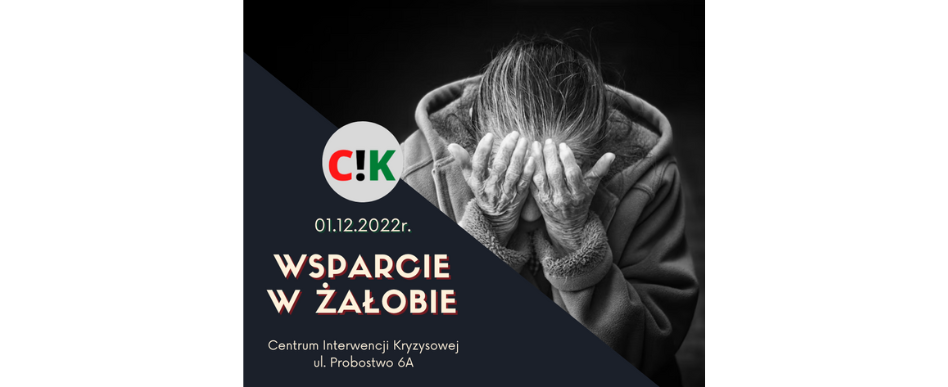Today we will lean into the difficult topic of bereavement.
Bereavement is a process of complex reaction (psychological, somatic, social and spiritual) occurring due to the loss of a loved one. It is an adaptive coping mechanism, but may be accompanied by various emotions, such as sadness, despair, anger, or helplessness.
There are many different models depicting the stages of the bereavement process. We distinguish between:
SHOCK – usually appears within the first few days after the death of a loved one. A grieving person at this stage feels helplessness, inner chaos, agitation, disbelief. He can’t allow the loss into consciousness, doesn’t believe in it, denies what happened.
- RECOGNIZING THE INDEPENDENCE OF THE LOSS – this is a time of experiencing very violent and contradictory feelings, such as simultaneous anger and longing for the deceased.
- EXCITEMENT – this phase may be accompanied by depressive states, despair, or a tendency to isolate oneself.
- RETURN TO INTERNAL EQUALITY – at this stage, the wounds associated with the loss begin to heal. The grief felt wanes, the bereaved person slowly forgets the suffering, and begins to make plans for the future.
- RENEWAL PHASE – the person begins to take a renewed interest in the world, daily life, feels joy. A person begins to take care of his inner needs and learns to live without the deceased.
How to support the bereaved person?
Be close, show the person your concern as well as your presence,
Instead of consoling, try to listen first and foremost,
Provide the person with space to express all feelings, even those that do not conform to commonly accepted norms (such as anger at the deceased),
Avoid “get over yourself” type advice,
Don’t look for the positive side of the loss, or belittle its magnitude,
Never say you know how the bereaved feels,
Show different options for getting help, e.g. support groups for bereavement survivors, psychological help.
If you need help and support call the Crisis Intervention Center.
6A Probostwo Street,
20-089 Lublin
Monday – Friday, 7:00 am – 7:00 pm
Phone: 81 466 55 46
E-mail: pomoc@cik.lublin.eu
